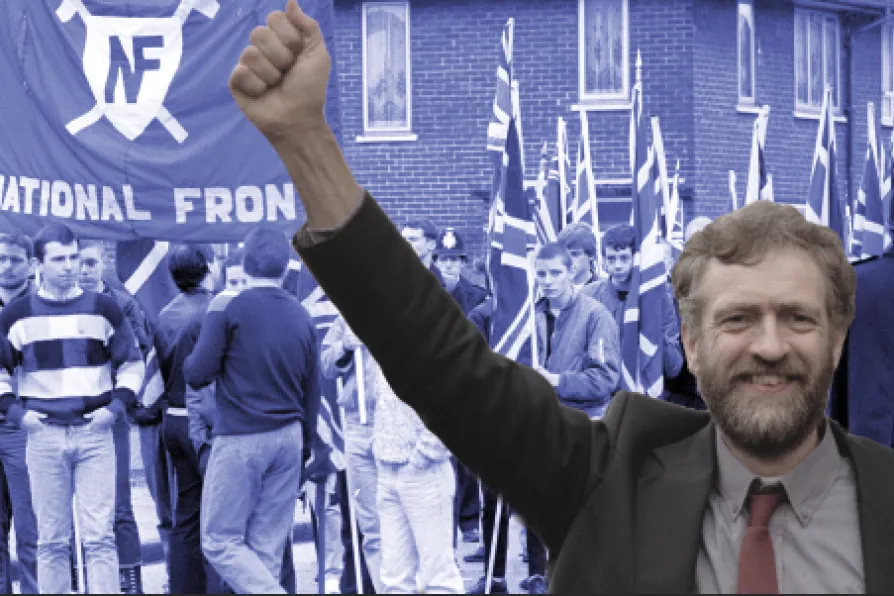Labour prospects in May elections may be irrevocably damaged by Birmingham Council’s costly refusal to settle the year-long dispute, warns STEVE WRIGHT

 Corbyn played a key role in the “Battle of Wood Green” on April 23 1977, one of the landmark battles which grappled with the rise of the fascist National Front, eventually successfully. On that Saturday afternoon the fascists planned to march down a bustling multi-racial shopping street with the aim of stirring up division and hate.
Corbyn was the organiser of the counter-demonstration.
Corbyn played a key role in the “Battle of Wood Green” on April 23 1977, one of the landmark battles which grappled with the rise of the fascist National Front, eventually successfully. On that Saturday afternoon the fascists planned to march down a bustling multi-racial shopping street with the aim of stirring up division and hate.
Corbyn was the organiser of the counter-demonstration.
JEREMY CORBYN’S Haringey years have led to lasting respect in the area.
I last saw Corbyn in person just before the first lockdown in early March 2020 when he delivered the 20th anniversary Bernie Grant lecture at the Bernie Grant Centre in Tottenham.
His speech that day ranged across issues from anti-racism, the history of slavery and the rise of Black Sections in the Labour Party.

Once again Tower Hamlets is being targeted by anti-Islam campaigners, this time a revamped and radicalised version of Ukip — the far-right event is now banned by the police, but we’ll be assembling this Saturday to make sure they stay away, says JAYDEE SEAFORTH

While Hardie, MacDonald and Wilson faced down war pressure from their own Establishment, today’s leadership appears to have forgotten that opposing imperial adventures has historically defined Labour’s moral authority, writes KEITH FLETT












